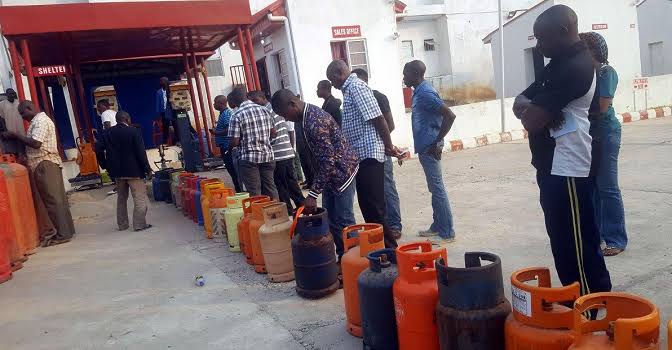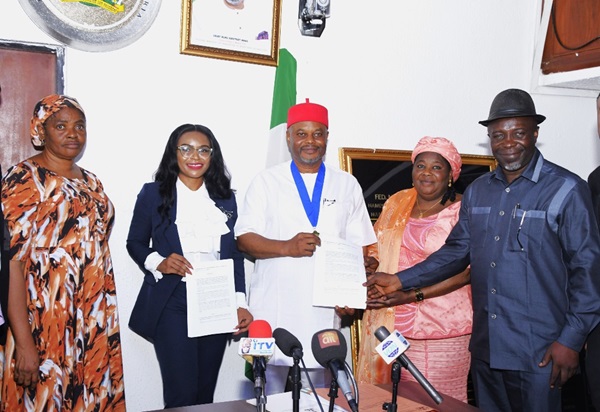Place your adverts here on InfoDig @ low rates; banner ads, sponsored links and guest articles etc. Contact us
Members of the Organised Private Sector and Civil Society Organisations have expressed deep concerns over the worsening economic conditions in Nigeria, highlighted by escalating inflation, rising food prices, and surging unemployment.
These groups are calling for an urgent review of government policies, which they argue have only brought hardship and despair to citizens.
Since President Bola Tinubu took office in May 2023, the average price of commodities has increased significantly, with inflation rising from 22.41% to 32.70% in September 2024.
This marks a sharp 10 percentage point increase over the 13 months of continued economic strain.
Several factors, including the removal of fuel subsidies and the depreciation of the naira, have further exacerbated the situation, pushing the cost of living to unprecedented levels.
A report from the National Bureau of Statistics paints a grim picture, showing a steady rise in inflation.
By January 2024, inflation had reached 29.90%, driven largely by soaring food costs.
This pattern continued into 2024, peaking at 34.19% in June before a slight drop to 32.70% in September.
Despite efforts by the Central Bank of Nigeria to curb inflation through an 850 basis point hike in interest rates, concerns remain over the long-term impact on economic growth and borrowing costs for businesses.
The removal of fuel subsidies, a cornerstone of Tinubu’s economic reforms, has triggered sharp increases in fuel prices, further straining households and businesses.
Fuel prices skyrocketed by over 488%, rising from N175 in May 2023 to N1,030 in October 2024. Despite promises to lower fuel prices during his campaign, the president’s policies have only deepened the struggles of ordinary Nigerians.
Although Nigeria’s GDP grew by 3.19% in the second quarter of 2024, this economic growth has not translated into tangible improvements in the lives of average citizens.
Rising production costs, weakened consumer purchasing power, and high borrowing costs continue to hamper businesses, especially in the manufacturing and small business sectors.
Key industry leaders have spoken out about the dire situation. The Director-General of the Manufacturers Association of Nigeria (MAN), Segun Ajayi-Kadir, called for a rethink of the government’s inflation-fighting strategy, which he said has been ineffective.
He emphasized the need for a comprehensive impact assessment of the persistent interest rate hikes, highlighting the toll they’ve taken on the manufacturing sector.
Ajayi-Kadir told The PUNCH: “I mean, it is evident. You can’t do the same thing for 18 or 28 months, and expect a different result. What this has proven is that we need to rethink our strategy. We need to rethink the way we have managed the issue of inflation and the economy in general.”
Ajayi-Kadir said MAN was one of the most impacted sectors by the rising inflation and urged the government to carry out an impact assessment.
“We have asked for an impact assessment of the persistent increase, and whether it has achieved its objective. And if it has not, we must be able to ascertain what else we need to do and what sectors have suffered as a result of this persistent increase.
“If we do that analysis, I think it will be evident that manufacturing has been the most impacted because it is no longer possible for you to borrow and produce and be profitable, competitive and sustainable. So you can’t borrow at a rate of more than 30 per cent or 34 per cent.”
He acknowledged that the country needs to grow what it eats and be able to fight insecurity affecting production to ease food inflation.
He added, “We also need to be able to check the activity of middlemen that have continued to create this steep rise. And then we need to give effect very quickly to the importation of the food.
“Though I need to say that we need to be very careful about that so that we set the right quota and we monitor the implementation so that it is those who have milling facilities as envisaged in the reform, in the measure for implementation.”
The MAN DG urged President Tinubu to consider the state of the economy to make necessary changes.
“In coming back, Mr. President would be best advised that well, the situation in the economy has not really improved so there is more to be done and all hands should be on deck to intentionally backtrack the resolution of the economic situation we are in as envisaged in the stabilisation plan of the government,” he advised.
Ajayi-Kadir’s sentiments were echoed by other sector leaders, including the National President of the Association of Small Business Owners of Nigeria, Dr. Femi Egbesola, who warned that small businesses face the risk of closure due to rising operational costs.
He said, “Rising costs for everything from raw materials, taxes, energy, fuel, other inputs and cost of doing business, eat directly into profits, making it harder to stay afloat.
“This squeeze is further amplified by weakened consumer spending power. As people have less money to spend, non-essential purchases often take a back seat, potentially leading to declining sales and eventually job losses as businesses continue to prune down costs.
“We strongly advocate for the re-jigging of the president’s cabinet, as some of the ministers are not making significant impact in their assigned ministry.”
Egbesola asserted that “best hands should be engaged to chart a more innovative way forward out of the economic quagmire we are.”
Public analysts and economic commentators have also urged the government to prioritize key sectors like food security, transportation, and infrastructure.
As Nigerians grapple with these challenges, the government is being urged to take more decisive actions to alleviate the economic hardships.
With inflation remaining stubbornly high, many argue that only bold and compassionate policy adjustments can provide relief to the millions of Nigerians affected by the current crisis.













![[Updated] List of Scholarships for African Women 2024](https://www.afterschoolafrica.com/wp-content/uploads/2015/11/Educate-a-woman-girl.jpg)
 English (US) ·
English (US) ·